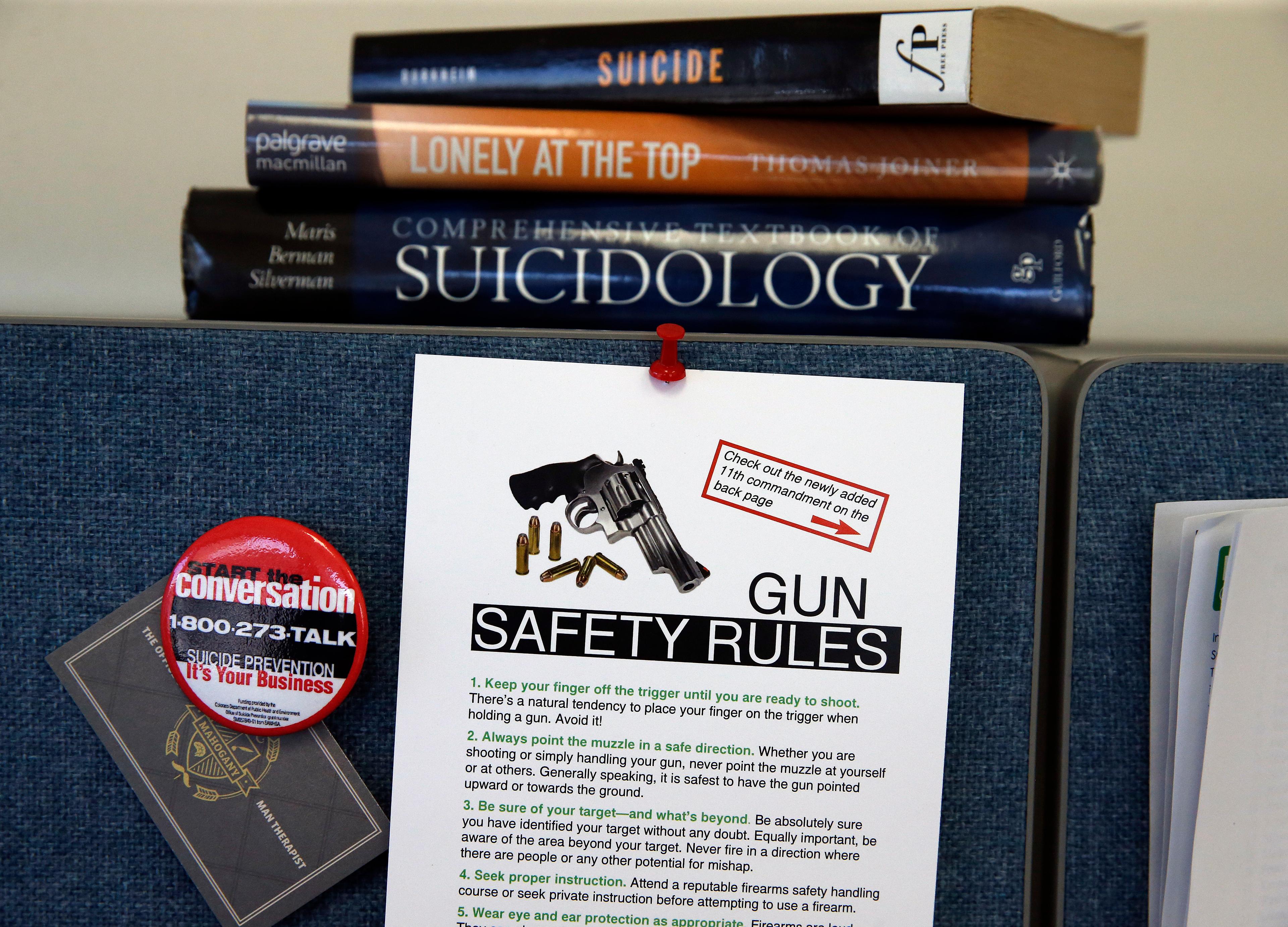
There are countless families across Colorado who have lost loved ones to suicide.
Sheri Cole is one of them. Ten years ago, her 16-year-old son, David, died by suicide.
“I didn’t know the things I know now, which I know would have made a difference in terms of giving him more opportunities to still be here,” Cole said.
Since then, she’s become an advocate for suicide prevention, most recently as the Colorado Area Director for the American Foundation for Suicide Prevention.
The volunteer organization is currently supporting a popular bipartisan measure to create a national three-digit number — 988 — to dial to reach a local suicide prevention hotline.
Even Cole, who knows the 10-digit numbers to different suicide prevention lines off the top of her head, sometimes has troubling rattling them off. If someone is in crisis, only remembering three numbers will “help make life saving resources more accessible and to help normalize help seeking,” Cole said.
In 2018, 21 of every 100,000 deaths in Colorado were by suicide, far greater than the national average of 13.9, according to the most recent United Health Foundation report. Colorado has the ninth worst rate of death by suicide in the U.S., and suicide is the leading cause of death in Colorado for youths 10-24.
Statistics like that are leading Congress members to mobilize. They have introduced more than one hundred bills to tackle the problem of suicide — from veterans and youth to education and research.
FCC Chairman Ajit Pai announced last week that the commission will vote to set up the number in December. He was joined by Republican Sen. Cory Gardner, a sponsor of a congressional bill asking for the same. The legislation would also provide additional funding to support the hotline number.
“This mental health emergency line is something that is going to have real impact immediately. Something that children will be able to recall and our eldest of seniors,” Gardner said.
The House version of the bill has more than 100 co-sponsors, including three of Colorado's members. It’s also one just one of the suicide prevention measures that Gardner is advocating for in Congress.
For example, he’s sponsoring the Stand Up Act, which Gardner said will “help schools with the resources they need to have the tools to stop the bullying or mental health abuse they see that go unanswered.”
The bill has the backing of Sandy Hook Promise, a nonprofit led by families that lost loved ones in the Sandy Hook School shooting. The group said youth suicide and violence against others is preventable, but many are unaware of the warning signs.
Susan Marine, chair of the Suicide Prevention Coalition of Colorado, has her eye on another Gardner bill: a school loan repayment program for mental health professionals who work in underserved areas.
“There’s simply a lack of enough providers who want to practice in these areas,” Marine said.
Students would get one-sixth of their education debt repaid for every year of service, up to $250,000 over six years. Marine likes the bill because it addresses two current problems.
“One is the shortage of mental health professionals. And secondly, the cost of getting a mental health professional education,” she said.
More professionals are needed as more people are talking about mental health and more people need access to services.
Cole said there is a paradigm shift taking place.
“The number of people that have discomfort around talking about mental health, we feel that that's shrinking,” she said. “But it's because of the rest of it that's growing, and more people being willing to literally open up and talk and share, because we believe that talk can save lives.”
Democratic Rep. Joe Neguse believes this is where Congress can play a “robust role.” Neguse said federal lawmakers should put more money into prevention. He has written a letter to the Senate and House appropriations committees asking that Congress provide the highest level of funding possible for mental health programs that reduce suicide among young Americans and improve mental health.
“I think this is an issue where Republicans and Democrats can come together in trying to find ways to better support to support local communities and local programs that are working,” Neguse said.
As Gardner put it, suicide is a public health problem that Congress cannot ignore.
“Losing someone every seven hours from suicide is not acceptable,” he said. “And so the Congress needs to act.”
If you are in crisis, please call the National Suicide Prevention Lifeline at 1-800-273-TALK (8255), or contact the Crisis Text Line by texting TALK to 741741.









